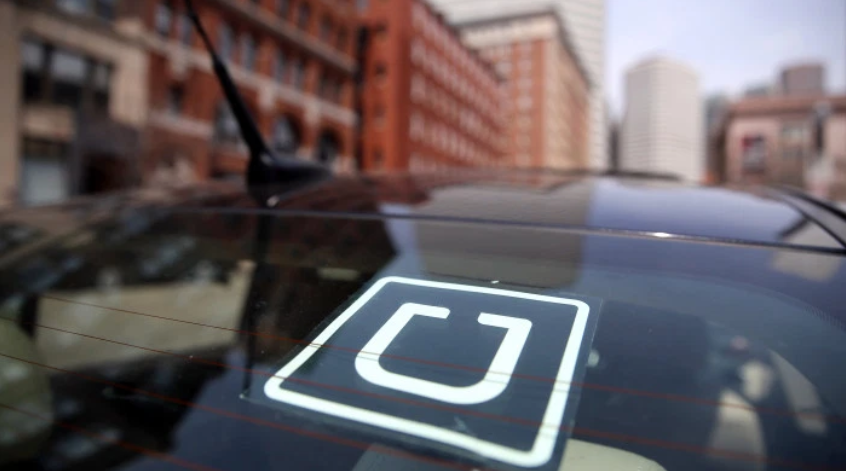Uber To Record Audio During Rides Amid Spate Of Sexual Assaults
Uber is planning recording audio from rides in the United States as part of a new security initiative, amid rising safety concerns over drivers who have sexually assaulted passengers, according to the Washington Post.
The new feature, which will be piloted in Mexico and Brazil next month, will let users opt-in to active an audio recording on any trip or all trips, according to internal communications leaked to the Post. Where available, passengers would be given a blanket warning that trips may be recorded, and that the feature will be active in their market. Neither riders or drivers will be able to listen to the audio.
The on-trip audio recording is the latest safety-oriented change the app is making amid a push to reduce violence, unwanted advances and inappropriate behavior in its rides. Uber has added features such as in-app 911, along with automatic safety check-ins when trips veer off course as part of its Safety Toolkit.
Uber said that in the upcoming pilot, drivers can set the feature to automatically record all trips. For riders to record, they have to activate the feature through the Safety Toolkit, which becomes available before they get into the car. Drivers and passengers’ recordings are placed in their trip history in case they decide to report the incident later. –Washington Post
“When the trip ends, the user will be asked if everything is okay and be able to report a safety incident and submit the audio recording to Uber with a few taps,” reads an email written by an Uber executive. “The encrypted audio file is sent to Uber’s customer support agents who will use it to better understand an incident and take the appropriate action.”
The company plans to test it in the U.S. “soon,” according to the email, but the timeline for rolling it out is still unclear and may be difficult. “Laws in the United States around consent to being recorded can vary from state to state, but we hope to be able to make this available nationally,” the email said.
In an interview with The Post, Sachin Kansal, Uber’s head of safety products, said the feature is expected to help prove the truth of what happened on a ride, allowing the company to take decisive action.
“We have taken a position that whenever you are in an Uber, the feeling that we want both parties to have is ‘the lights are on.’” he added. “That leads to safer interaction on the platform.” –Washington Post
Uber has come under fire for numerous allegations of physical assaults, rapes, sexual assault and sexual harassment – with some riders and drivers complaining that the company has been slow to respond to allegations or hasn’t taken them seriously enough, chalking disputes up to a ‘he said, she said’ situation.
In April, a Washington DC woman sued Uber for negligence and consumer protection violations after she was raped by one of the ride-hailing company’s drivers, Raul E. Rodriguez Vasquez. DNA evidence linked him to the assault, and he pleaded guilty to one count of sexual abuse.
In 2018, CNN reported that at least 103 Uber drivers in the United States had been accused of sexually assaulting or abusing their passengers over a four-year period. And according to The Verge, at least 31 drivers have been convicted of crimes ranging from forcible touching and false imprisonment to rape.
The Post, meanwhile, reports that Uber’s internal safety division – the Special Investigations Unit, primarily exists to shield the company from liability when such issues arise.
That said, the new feature also raises concerns over privacy – as well as the potential to run afoul of various state wiretapping and eavesdropping laws aimed at protecting people from being recorded without their consent.
Albert Gidari, consulting director of privacy at the Stanford Center for Internet and Society, said Uber runs the risk of violating those laws. What the company does with those communications is irrelevant to that conversation, he said. (Uber said its encrypted audio files would be password-protected for security.)
Uber needs to show the passengers and driver “expected they would be recorded or could be recorded in the vehicle,” he said. “Absent that the fact — that it’s an encrypted file is a meaningless safeguard.”
Further complicating the issue is the myriad situations that could occur in an Uber, where the ride may be just a passenger and a driver or a group of passengers such as on a pooled ride. There could also be a sleeping or intoxicated passenger. –Washington Post
“You might have the drunk passed out in the back — you might have the additional rider who might understand it,” said Gidari. “Either party can invoke it, but how can the other parties know what’s happening?”
Last year Uber and Lyft suspended a driver who was covertly live-streaming passengers’ trips.
“If someone is already uncomfortable and they start the audio recording, we don’t want there to be any escalation of that particular situation,” said Kansal.
Tyler Durden
Wed, 11/20/2019 – 15:50
via ZeroHedge News https://ift.tt/33aKLcl Tyler Durden
